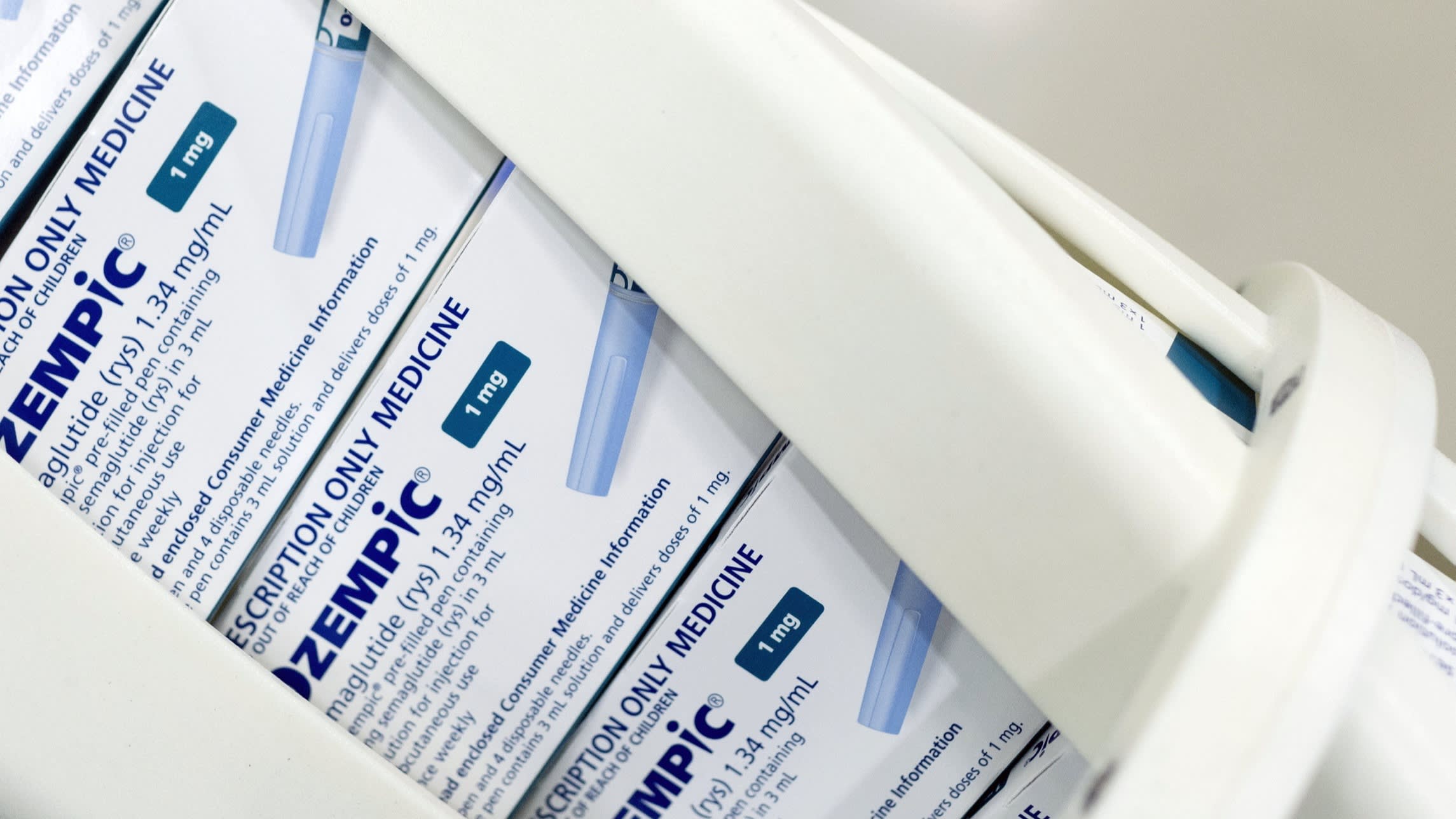
Unlock the Editor’s Digest for free
Roula Khalaf, Editor of the FT, selects her favourite stories in this weekly newsletter.
Novo Nordisk has called on the US regulator to ban imports of a key ingredient used to make copycat versions of its obesity and diabetes drugs, as the Danish drugmaker loses market share to the replicas.
Karsten Munk Knudsen, Novo Nordisk’s chief financial officer, said “compounded” versions, or replicas, were a “big risk for patient safety”, as well as impacting the company’s business.
The company said it estimated that about 1mn Americans were taking copycat versions of its drug semaglutide, even though the vast majority of these were meant to be banned from May this year.
Knudsen said the company was in talks with the US Food and Drug Administration about taking measures including clarifying the law on what constituted a “personalised” compounded medication, and standards for the active pharmaceutical ingredients used to make them.
“There are a lot of things we would like [the FDA] to do, but one thing is basically to say it’s not legal to import compounded active pharmaceutical ingredient into the US, as a concrete example,” he told the Financial Times.
An FDA spokesperson said the agency recommends patients use FDA-approved drugs when available, adding that it does not review compounded drugs for safety, effectiveness or quality before they are marketed. She said the FDA is “concerned about the proliferation of compounded GLP-1 drugs”, including reports of serious consequences of dosing errors.
The spokesperson added that “high drug prices have a direct impact on patients — too many American patients are priced out of the medicines they need”.
Knudsen said that Novo launched another 14 lawsuits against compounders this week, bringing its total to about 130, on top of more than 1,000 cease and desist letters.
“We believe that the compounders are navigating in a big, big grey area,” he said.
Sales of Novo Nordisk’s diabetes drugs including Ozempic slowed to grow at 8 per cent year on year in the first half, down sharply from its rate last year, as the company said it would cut costs and sharpen its commercial focus.
The Danish drugmaker, which until earlier this year was Europe’s largest company, cut its full-year sales and profit forecasts last week, wiping more than €60bn from its value. The company’s new chief executive, Maziar Mike Doustdar, starts this week, after his predecessor Lars Fruergaard Jørgensen was ousted in May.
Jørgensen said the company was taking measures to “sharpen our commercial execution further” and cut costs, while investing in future growth.
“With more than 1bn people living with obesity globally, including more than 1mn living in the US, and only a few million on treatment, I am confident that under Mike Doustdar’s leadership, Novo Nordisk will maximise the significant growth opportunities, supported by a strong product portfolio and future pipeline,” he said.
Last week, Novo Nordisk warned that its full-year sales growth was expected to be 8 per cent to 14 per cent, far lower than its previous estimate of 13 to 21 per cent. It downgraded its forecast for profit growth for 2025 to 10 to 16 per cent, from previous guidance for 16 to 24 per cent.
In the first half, Novo Nordisk’s total sales were DKr155bn ($24bn). Sales of diabetes and obesity drugs increased 16 per cent to DKr145.4bn, or 18 per cent at constant exchange rates. GLP-1 diabetes drugs grew 8 per cent year on year, slower than its rate of 21 per cent last year as it loses market share to rival Eli Lilly and other makers of copycat drugs. Sales of obesity drugs, which includes Wegovy, increased 56 per cent, the same pace as the year before.
In the first half, diluted earnings per share increased 23 per cent year on year to DKr12.49. Net profit was DKr55.5bn.
Novo Nordisk said it had about 51 per cent of the US market volume for GLP-1 drugs, which include Ozempic and Wegovy, but a far greater 71 per cent in international markets. It has launched Wegovy, for weight loss, in 15 new countries this year.
But uptake has been slower than the company expected in China, with only single-digit sales growth in the first half. Knudsen said this was because of the “pace of market expansion”, not competition.
“It takes quite some heavy lifting, really, to tap into the full opportunity of that market space, and that’s what we’re working hard on,” he said.



